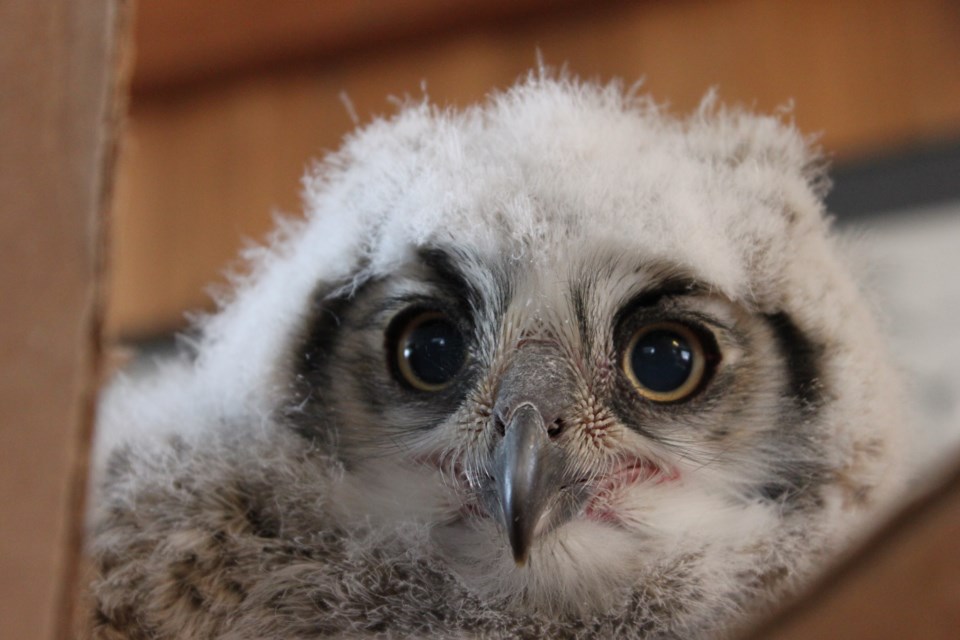ROCKY VIEW COUNTY— Spring is in the air, and with the warm weather comes baby animals who may need help.
This time of year, the Cochrane Ecological Institute begins to see more orphaned baby animals in need of aid, said president Clio Smeeton.
She anticipates seeing additional animals this year due to the intense wind storms that have been present in the region.
“We may get some little owls and things that have been blown out of their nests, but toward the end of this month it will be really busy,” Smeeton said.
The Cochrane Ecological Institute serves as a home to rehabilitate injured animals, helping them heal and experience the wild before being released back into nature when they are ready.
April is often the busiest time at the institute.
There are important steps to take if you come across a baby animal. Smeeton recommended giving the Institute a call right away so they can offer guidance on what to do to help the animal in need.
All animals are different and should be approached in different ways.
For example, moose calves are never separate from their moms and it can be dangerous to go check on the calve if she is present. When approaching a moose calve to see if it needs help, Smeeton said, be 100 per cent certain the mom is not in the area.
In contrast if bear cubs are spotted on their own, one can be fairly certain they are not with a parent and may require rescuing.
She noted not all baby animals are orphans and it takes paying careful attention to understand when to intervene.
“Little baby hares, they aren’t orphaned their mother left them where she thinks they are safe, and she’s gone off to graze and will come back to feed them,” Smeeton said. One only needs to worry if they are in the same place for more than 15 hours, something may be wrong.
The same rule applies to deer fawns that are often left for the same reasons.
People can help baby owls that may have been blown out of their nests by picking them up and putting them high-up in the nearest possible tree. But if no trees are nearby and it is in a weird place, wrap it with a coat or blanket get it to safety and contact the Institute.
The key to all these scenarios is to give the Institute a call, Smeeton said, so people can find out the best way to help the animals.
She added this time of year marks the return of many migratory birds.
“The birds from down south will be migrating up through Cochrane so they might fly into windows because it’s not their own place,” Smeeton said. “People should look out for them.”
She encouraged people to be ready to provide rescuing if the birds are in need, but to also to keep an eye out to catch a glimpse of the unique birds that are only in the area when they are passing through the area during their migration.
“They’re beautiful and bird watching is really fun to do,” Smeeton said. “If you bird watch you will see if there is something wrong, or something that needs fixing or helping."
One of the silver linings of COVID-19 has been people going outside more and exploring nature, which in turn has helped orphaned baby animals find help when they are in need.
“Everyone should really look at where they live, look at the sky, look at the trees, look at everything so they know it really well— They will see if there something in an odd place where you don’t expect it,” Smeeton said. “Listen and look it’s really important to do that.”
The Cochrane Ecological Institute will be hosting classes on experiencing nature and understanding the environment local animals call home.
On May 7 hosting a Zoom presentation on wildlife rehabilitation education for the public.
"Rescue and Return to the Wild Philosophy and Action: A 'Learn Your Landscape Event with the Cochrane Ecological Institute" will include small tours for small groups on May 2 before the presentation.
The Institute is also hosting a fundraiser to create an exclusive short-eared owl enclosure to rehabilitate injured owls.
For more information visit the Cochrane Ecological Institute.
Read more from CochraneToday.ca



